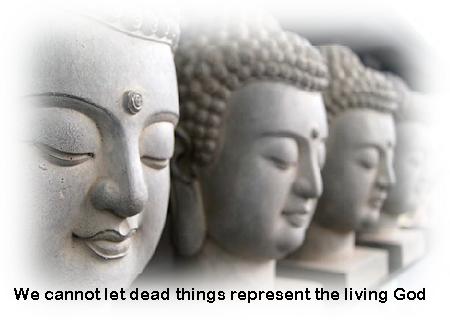God’s Jealousy and the Outpouring of His Spirit Joel 2:18-32
God’s Jealousy and the Outpouring of His Spirit Joel 2:18-32

In this meditation I’d like to make a few remarks about a central part in the book of Joel: the section that ends with the famous promise of the outpouring of the Holy Spirit. Peter quotes this text on the day of Pentecost (Acts 2). This part starts in Joel 2:18: ‘Then the LORD became jealous for his land and had pity on his people’.
This combination of his jealousy and pity urges God to restore the land, trees, and vineyards. There will be early rain and late rain again, and the effect of the terrible fourfold locust plague described in Joel 1 will be restored. But not just that: the reason causing God to send these armies of locusts – the lack of true commitment in the service of God in the temple of Jerusalem – will be restored as well: the outpouring of God’s Spirit will heal Judah and Jerusalem in this respect. All young and old, men and women, servants and maids will be so doused with God’s Spirit that they are fully aware of all the great deeds and plans of God. This makes Jerusalem a home for all who call to God for deliverance from judgment.
It is my intention to search for an answer to the question: what does all this – and especially the abundant gift of his Spirit – have to do with God’s jealousy?
God’s Jealousy⤒🔗
God is ‘a jealous God’ (Ex. 20:5; Dt. 5:9; cp. Ex. 34:14) – what does that mean for us?
The words ‘jealous’ and ‘jealousy’ (Hebrew: qn’) have the connotation of ‘an intense, energetic state of mind, urging towards action’ (Peels, DOTTE 3,938 s.v.). Think of passion. Think of burning fire. Think of a raging storm, fury.
God is a passionate God. He cannot remain passive or silent when someone insults him or disqualifies him. As examples, when someone acts as if God does not exist, or as if he had never spoken, or when someone gives his honour to someone else, or when someone attacks his beloved, his people, his servant, his anointed, or mocks them.
His jealousy is a very personal revelation of God’s being. It is an expression of his highness and holiness; it is God taking his holiness seriously. Is God’s jealousy a characteristic that we should fear, because it is dangerous? Or is it a quality of God that gives us hope and joy?
God introduces himself as ‘a jealous God’ in the closing words of the first two commandments of the covenant law. This means two things, to begin with.
His reaction to the first commandment: no other gods before me, characterizes God as a jealous God. Anyone refusing to obey, kneeling before other gods in his presence, arouses his jealousy. You cannot serve God and at the same time one or more other gods. Whoever does so treats God as one of the many, denying that God is the only one. But there are no other gods! All that is presented or presents itself as gods besides God are fake gods. To place God on the same level as non-gods, fake-gods is very insulting. It touches the heart of his holiness, his honour.
God’s reaction to the second commandment: no carved images to bow down to or to serve, can, to some extent, be compared to his jealous reaction to the disobedience of the first commandment. False gods are as a rule represented by an image. But God’s jealousy also reacts fiercely to the use of manmade images of creatures in the service of God himself. It is far below God’s majesty, as the creator of all things, that people should think he can be represented by an image of a creature. We cannot let dead things represent the living God; we cannot lock him up in a creature; we cannot make him portable for our purposes.

Expressing this in one affirmative sentence: God claims the right to be the only one, the only creator and the only redeemer of his people (see Deut.4: 32-40). That is his holiness and his jealousy. God guards his uniqueness, his being the one and only God who is higher and has more majesty than any creature because he himself is the creator. Violation of this reality arouses an ardent reaction, a passionate answer. Israel experienced this expression of God’s jealousy, when he addressed the worshipping of other gods by Israel, Ezek.5:13; Zeph.1:18; 3:8 (cp. Deut.32:16, 21; Ps.78:58; Ezek.8:3).
God’s Jealousy demands all←⤒🔗
Let us think of the implications of what we have seen till now. God wants to be the only one for his people. He does not want his people to treat him on the same level as his creation, in one way or another.
What does this mean for Israel’s commitment to God? That he does not acknowledge any other god, that there is no other creator, or redeemer, means that God in his jealousy claims all the love and all the esteem of his people. That he does not accept but fiercely rejects the Israelites worshiping other gods, means that he also will not accept the Israelites keeping even a small bit of themselves for themselves. God’s jealousy demands the whole Israelite and all Israel.
This connection is made in the greatest commandment (Deut.6:4-5):
Hear, O Israel: The LORD our God, the LORD is one. You shall love the LORD your God with all your heart and with all your soul and with all your might.
His jealousy will not accept half a servant, half a believer. A half obedience, a 60 percent commitment, a 99 percent devotion is not enough.
A clear illustration of this side of God’s jealousy can be learnt from Joshua at the time of the renewal of the covenant in Shechem. His instruction is: fear the Lord and serve him in sincerity and in faithfulness (Josh.24:14). If they are not willing to do so, they can choose to serve either their old Babylonian gods or the new Canaanite gods, whatever. So the choice is: to serve God or to serve non-gods. The Israelites insist: ‘we will serve the LORD, for he is our God’ (18). Joshua replies: ‘you are not able to serve the LORD, for he is a holy God, he is a jealous God (...)’. There is an enormous risk: when they now commit themselves to God and after some time they start serving other gods as well, he ‘will do you harm and consume you after having done you good’ (20). They persist, nevertheless, and Joshua says: ‘Then put away the foreign gods that are among you, and incline your heart to the Lord’. They promise and they even sign for it in Shechem.
In his jealousy God claims the whole heart, the whole soul and all the powers of his men and women. God’s jealousy is a mighty power in the covenant; it enhances the relation between him and his people up to the maximum, to the optimum.
In fact, here we meet with the answer to a problem many Bible readers have with Joel. He summons Judah and Jerusalem to repent, but he does not tell us from what specific sin. Here we learn that sin has a mother. Her name is: loss of commitment, weakening of love, formalization of faith, emptiness of heart. Before there is sin, disobedience, or spiritual adultery, there is shrinking love, weakening faith. Judah and Jerusalem were not disobedient, but disobedience lures at the door. Judah and Jerusalem lose faith, they lack devotion. Sin will be the next step.
Joel passes on God’s instruction in Joel 2:12: ‘return to me with all your heart, with fasting, with weeping, and with mourning; and rend your hearts and not your garments’. God’s jealousy is speaking!

Is the Demand of God’s Jealousy Fair?←⤒🔗
God’s jealousy enhances the relation between him and his people up to the maximum. Humanly speaking, do we not see here a tremendous problem for the God of the covenant? Is it not – with Joshua – realistic and fair to say: neither Israel was, nor are we able to serve God in such a way? Will God’s jealousy not turn out to be a destructive power because of our sinfulness? Why should we enter the covenant with this ‘jealous God’ and risk our death sentence?
Why would God enter into a covenant with humans who will certainly disappoint and embarrass him? Does not his repeated passionate reaction to the lack of faithfulness of his people cause reputation damage? Will not his punishing of Israel’s sins, his anger against idolatry, and the fierce criticisms of his prophets against Israel’s conduct – without noticing any improvement, cause him to lose credibility? All these humiliations of Israel, its splitting into two kingdoms, the deportation of the ten tribes, the exile and dispersion of Judah, the destruction of his own house, the temple in Jerusalem, and in the end the complete dismantling of the throne of his beloved messiah – David and his royal house – do they build up the glory of his name?
Yes, here we have a serious problem. Because of his jealousy, God does not want to lose his covenant people in even the slightest way. But at the same time he only will be satisfied with 100 percent loyal believers, and with a 100 percent committed people.
Perhaps we think this must make God’s jealousy a threatening and destructive power. But – Joel’s preaching shows – it does not. God’s jealousy appears in combination with his pity to be an incomparably strong and creative power in the covenant. It does not only mean that God restores the land, the vineyards, the fruit trees and the throne of David. His pity on the people (Joel 2:18) transforms God’s jealousy into the energetic motivation to restore the land, the people, and the obedience, and to heal the gap between God and his people. When God is ready with his restoration work, the conclusion will be, Joel 2:27: you shall know that I am in the midst of Israel, and that I am the LORD your God and there is none else. And my people shall never again be put to shame’.
No more shame means that it is not enough to water the land, and to let the trees blossom and bear fruit. If God’s people are never again to be put to shame, they need to be created anew. The jealousy of God makes it necessary that it is sure that all his people only love him and that in them there is nothing besides the knowledge and the reverence and the admiration of God. In order to enable this, it will not be enough that God criticizes his people over and over, helps or even redeems his people, now and then to restore his people. For a people full of only his love and faithfulness God has to pour out his Spirit on all flesh. He has to baptize all flesh in his Spirit.
God’s Jealousy: Creative Covenant Power←⤒🔗
So are we to fear the jealousy of God? No, let us admire it! We may appeal to it. We may ask God for the fullness of his Spirit, for a heart full of faith, love and praise for his mighty love for us, for a heart that is full of Jesus and his passion for our salvation. God’s jealousy may help us to ask him sincerely to keep us from stumbling and to make us strong in doing good. God’s jealousy can help us to sincerely ask God for a complete renewal of our body, our soul, our heart and of all our power. God’s jealousy can stimulate us to strive ardently for a life that fits to God’s holiness and passionate love, for a mind and body that will not destabilize the covenant God made with us. God’s jealousy stimulates us to long to be cleansed completely and made perfect forever.

And the reputation damage? I consider the history of the failing of the covenant and the nevertheless ongoing radical faithfulness of the Lord to Israel as steps toward the suffering and repudiation of Jesus Christ, God’s own beloved Son. In order to forgive Israel’s guilt, and our sins, in order to cleanse us and renew us, God had to do the work himself. The Son took our place. He dressed himself in our sins and was rejected by Israel, by the world and by the Father himself. Jesus Christ had to come to become the new heart, the new spirit, the new soul of the covenant: the new man, the new Israel, the new David. He had to come as the standard of us renewed.
God is going to make that reality. It will be the victory of God’s holy jealousy. A blameless people will meet the glory of God’s holiness. Jesus together with the Spirit will ultimately present a blameless people to the Father, without guilt and without sin. Like Jude affirms when he closes his letter in the New Testament with this prayer: Now to him who is able to keep you from stumbling and to present you blameless before the presence of his glory with great joy, to the only God, our Saviour, through Jesus Christ, our Lord, be glory, majesty, dominion, and authority, before all time and now and forever. Amen (Jude 24-25).

Add new comment